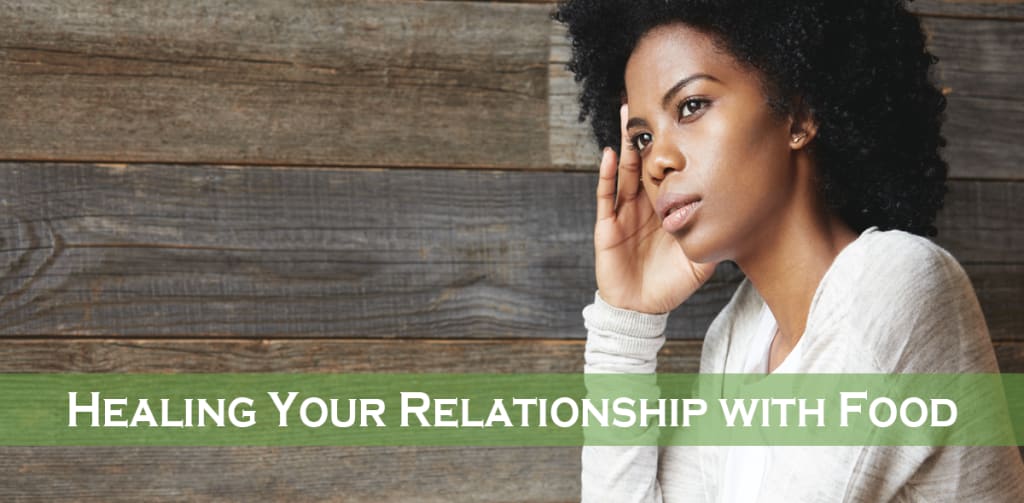Healing Your Relationship with Food
Relationship with Food

Eating disorders, depression, anxiety or other mental health conditions can affect your relationship with food. Recovery is an ongoing process that not only involves physical healing but also mental and emotional healing. As part of this journey, you must learn to redefine your relationship with food.
Understanding the Impact of Eating Disorders
Eating disorders such as anorexia nervosa, bulimia nervosa, and binge eating disorder are serious illnesses. They interfere with regular eating habits, body image, and self-esteem. They can cause a disordered view of food, eating, and weight. This results in unhealthy eating patterns.
Redefining Your Relationship with Food
Rebuilding a healthy relationship with food involves a shift in perspective. It means learning how to view food as nourishment and an essential part of life. It also means working letting go of seeing it as a source of fear, guilt, or shame.
Food as Nourishment
The first step is understanding that food is fuel for your body. It provides the nutrients needed for energy, growth, and maintaining health. Eating a variety of foods ensures your body gets a balance of nutrients, which is key for recovery.
People who undergo therapy for an eating disorder work with a dietitian who is experienced in eating disorders to create an individualized meal plan. This plan may include foods from all food groups and take into account your personal likes, dislikes, and nutritional needs. The goal is not to follow a rigid diet but to develop flexible, balanced eating habits that can be maintained in the long term.
Avoid Using Food as a Coping Mechanism
Often we tend to eat as a way to deal with anxiety, stress, or situations out of our control. Food may offer some comfort, or temporarily seem to fill an emotional void inside you. However, it is healthier to use other coping mechanisms, such as therapy, exercise, spending time in nature, meditation, and self-care.
Food as Part of Life

Food is a fundamental part of life, from everyday meals to special occasions. Recognizing this fact can help shift your perspective and normalize your eating behaviors.
Rather than avoiding social events involving food, try to participate in these occasions. Start slowly if needed, and use coping strategies to manage any anxiety. For example, you might choose to eat something beforehand, bring a supportive friend, or plan what you will say if someone comments on your eating habits.
Be Mindful
Practice mindful eating. Mindful eating involves paying attention to the experience of eating, including the taste, texture, and smell of food. It also means listening to your body's hunger and fullness cues.
Question Rules
Challenge your rules around food and eating. Someone with an eating disorder may have strict rules about what, when, and how much they can eat. A nutritionist can help you step away from a diet mindset and encourage a healthier approach and attitude towards how you eat. Part of recovery is challenging these rules and replacing them with more flexible guidelines.
Join a Support Group
Connecting with others who have had similar experiences can provide comfort, reduce feelings of isolation, and offer practical advice.
Seek Professional Help
Therapists, dietitians, and other healthcare providers experienced in eating disorders can provide support and guidance throughout your recovery process. Therapy can help address underlying issues, develop coping skills, and improve body image. Trust Mental Health offers eating disorder treatment in San Jose and all over California. Contact us today for a free 15 minute consultation.
FAQs
What does it mean to have a healthy relationship with food?
A healthy relationship with food is about balance, moderation, and enjoyment. It involves eating a variety of foods for nourishment, listening to your body's hunger and fullness cues, and allowing yourself to enjoy food without guilt or anxiety.
What is emotional eating?
Emotional eating is eating in response to emotions rather than physical hunger. This can include eating for comfort, stress relief, or as a reward. While it is normal to eat emotionally sometimes, frequent emotional eating can lead to overeating and health problems.
When should I seek professional help for my relationship with food?
If food-related issues are causing distress or interfering with your life, it may be helpful to seek professional help. This could involve the team effort of a dietitian, therapist, and doctor.
About the Creator
Trust Mental Health
Trust Mental Health offers both online and in-person therapy. Our therapists come from diverse backgrounds and speak multiple languages. Visit our website to learn more #TrustmentalHealth






Comments
There are no comments for this story
Be the first to respond and start the conversation.